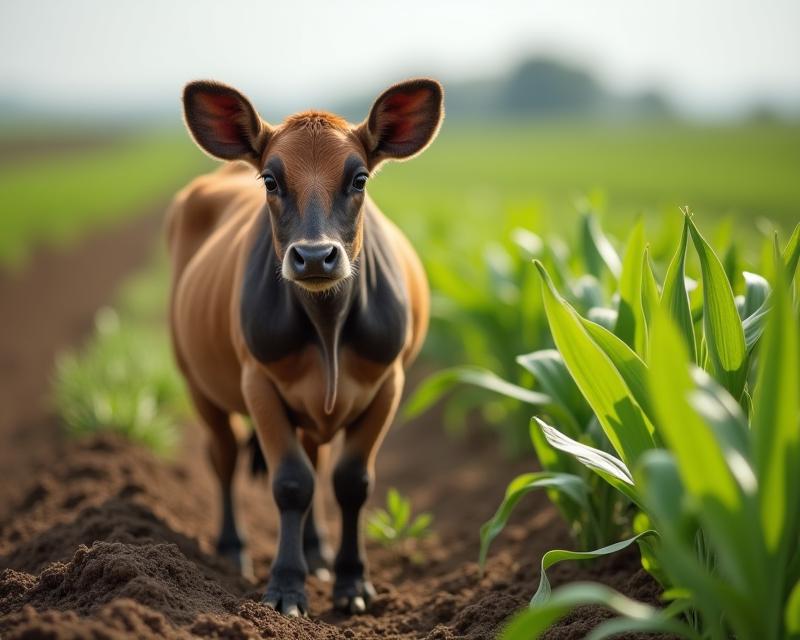Water Wise Farming: A Guide for Growers
Publish in Sustainable Farming el 23/07/2025 16:37
Water Wise Farming: A Guide for Growers
Water is the lifeblood of any farm, and effective water management is crucial for a successful harvest. Whether you're growing crops, raising livestock, or managing a ranch, understanding how to conserve and utilize water efficiently can significantly impact your yields, soil health, and bottom line. Let's dive into the fundamentals of agricultural water management.

Why is Water Management So Important?
Simply put, crops need water to grow! Insufficient water leads to stunted growth, reduced yields, and lower quality produce. Conversely, overwatering can lead to root rot, nutrient leaching, and increased disease susceptibility. Beyond crop health, water management directly affects soil health. Proper irrigation practices help maintain optimal soil moisture levels, supporting beneficial microbial activity and preventing soil erosion. In a world facing increasing water scarcity, responsible water use is not just good for your farm; it's essential for the long-term sustainability of agriculture.
Key Principles of Effective Water Management
Several strategies can help you manage water effectively. First, consider your crop's specific water needs. Different plants have different requirements, so understanding these needs is the first step. Next, explore irrigation methods. Traditional flood irrigation can be wasteful, while more efficient methods like drip irrigation and micro-sprinklers deliver water directly to the roots, minimizing water loss through evaporation. Consider soil type – sandy soils drain quickly and require more frequent, smaller irrigations, while clay soils retain water longer. Regular soil testing can help you determine the appropriate irrigation schedule.
Practical Tips for Water Conservation
Here are some practical tips you can implement on your farm:
- Monitor Soil Moisture: Use a soil moisture meter or simply stick your finger into the soil to check moisture levels before irrigating.
- Irrigate at the Right Time: Water early in the morning or late in the evening to minimize evaporation.
- Mulch Your Crops: Mulch helps retain soil moisture and suppress weeds.
- Collect Rainwater: Implement rainwater harvesting systems to capture and store rainwater for irrigation.
- Fix Leaks Promptly: Regularly inspect your irrigation system for leaks and repair them immediately.
By implementing these fundamental principles and practical tips, you can significantly improve your water efficiency, protect your crops, and contribute to a more sustainable future for agriculture. Water management is an ongoing process, so continuous monitoring and adaptation are key to success.





